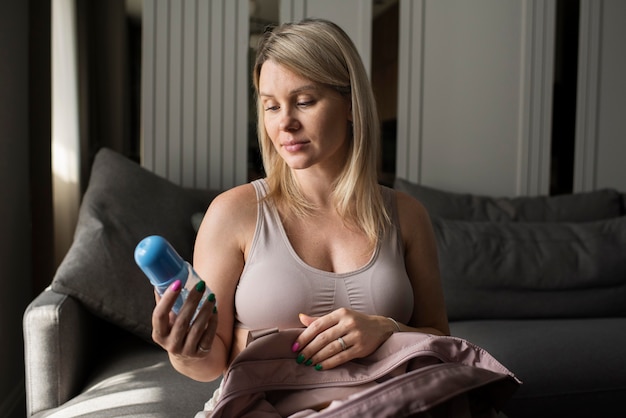
Infertility is becoming more common today, with the CDC reporting that about 10% of women in the U.S., ages 15-44, face challenges in getting or staying pregnant. There are various reasons for infertility, many of which are still not fully understood, but it’s clear that the impact is both personal and financial.
The upside is that in numerous instances, the body can naturally overcome infertility if it receives the right support. However, it’s crucial to consult a doctor or a qualified specialist for such issues to rule out serious underlying health problems. Many women find that working with a naturopathic doctor who focuses on nutrition, supplements, and lifestyle adjustments can be beneficial.
The CDC defines a woman as infertile if she is unable to conceive after a year of trying, or after six months for women over 35. Infertility often indicates an internal issue that needs addressing, not merely a lack of fertility drugs or IVF procedures. Fertility is a natural body process that can be disrupted if the body doesn’t feel it can support a pregnancy safely.
I’ve seen friends struggle with infertility, which can be incredibly distressing when all you want is to have a child. Thankfully, they were able to conceive by focusing on proper diet, supplements, and lifestyle changes. There are countless factors that might lead to infertility, making conventional treatments variable in effectiveness as they can’t cover all possible causes.
Fertility drugs and hormonal treatments, including birth control, might help with underlying issues, but they can also exacerbate them, complicating future fertility efforts. Infertility can stem from numerous issues, like hormone imbalances, PCOS, endometriosis, anovulatory cycles, and more. Lifestyle elements such as poor nutrition and exposure to certain chemicals also play significant roles, with age being a less influential factor before menopause than previously thought.
Dietary and lifestyle changes can significantly boost fertility and address other health issues like weight, energy levels, blood sugar, skin, and insomnia. Even those undergoing conventional treatments can enhance their success chances with natural body support.
A key approach involves a nutritious diet since many are undernourished despite being overweight. The body resists conception if it lacks essential nutrients needed for pregnancy. Commonly, women adopt low-fat, high-fiber diets to lose weight and boost health. Though weight loss can improve fertility, such diets often lack the necessary proteins and fats for hormone production.
Smoking, drug use, and high caffeine intake are well-known fertility barriers. Lifestyle changes, though sometimes challenging, are essential, particularly considering factors like adequate sleep. Sleep is vital for overall health and hormone production, affecting fertility. Prioritizing sleep, even through naps or earlier bedtimes, can help regulate essential hormones.
Exposure to household chemicals or plastics and some beauty products should be minimized. Exercise is also crucial—moderate recreational activity and some strength training are beneficial, but excessive exercise can hinder ovulation. Stress reduction, although often easier said than done, is vital for anyone experiencing infertility emotions. Checking if any medications could be affecting fertility is advisable, as some, like steroids or antidepressants, can have an impact.
Natural supplements and herbs can complement dietary and lifestyle changes for better results. Omega-3s are particularly beneficial, both for enhancing fertility and fostering a healthy pregnancy. However, herbs should not be mixed with fertility drugs without consulting a healthcare provider, and personal research is recommended.
Hormonal imbalances often link to infertility. Some women find success using natural progesterone cream, which requires careful research and usage, particularly in the cycle’s second phase. Continued use during the first trimester may be advisable but should be done with specialist guidance.
Infertility can be a tough journey for couples, but there’s hope through proper nutrition and lifestyle adjustments, which not only support conception but also enhance overall health. When medical interventions are necessary, couples might first consider these natural approaches. Moreover, this strategy can help with symptoms related to hormonal issues such as PMS, PCOS, and endometriosis. Testing fertility hormones can be an option, with Modern Fertility offering one such alternative. As always, these reflections should be discussed with a doctor to personalize any approach.

